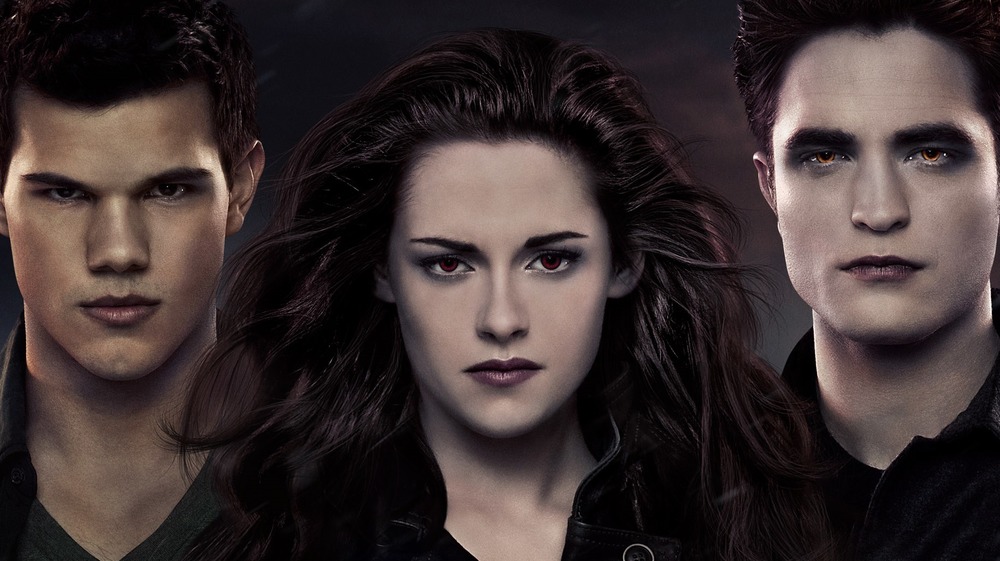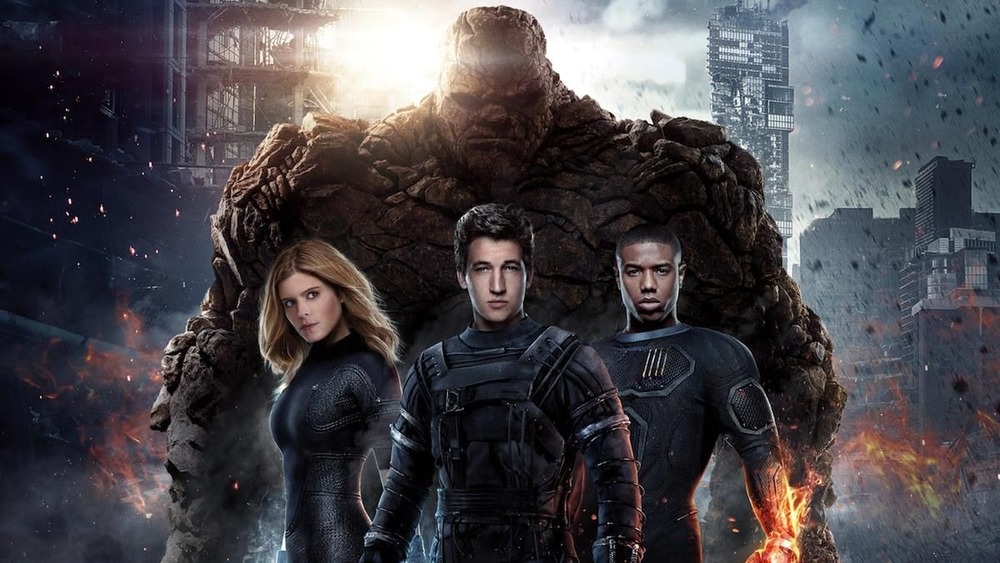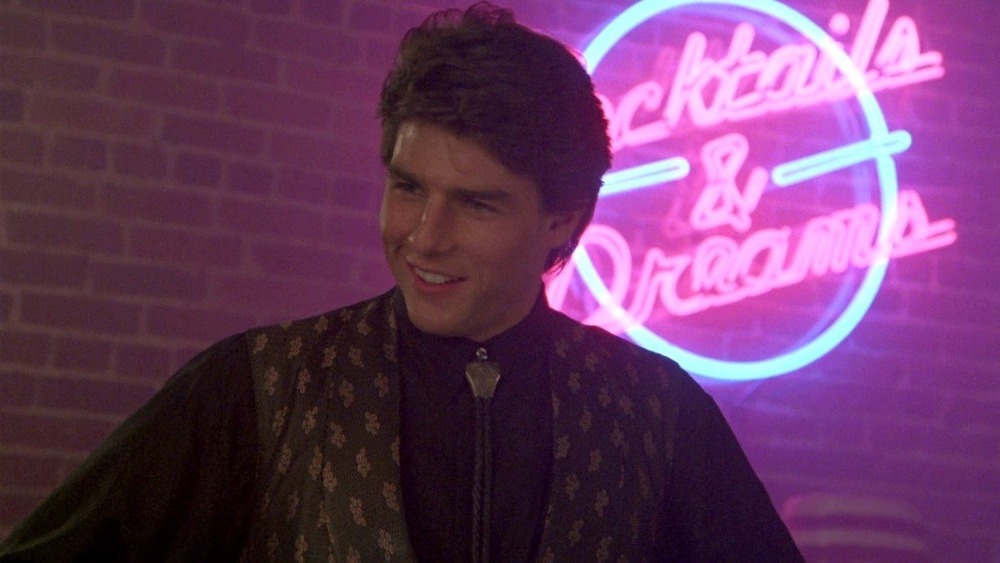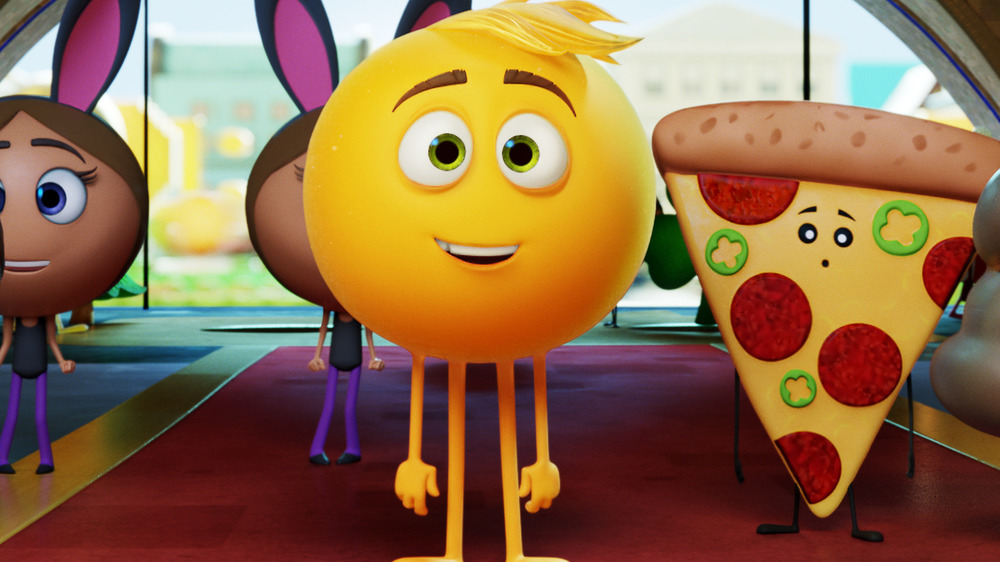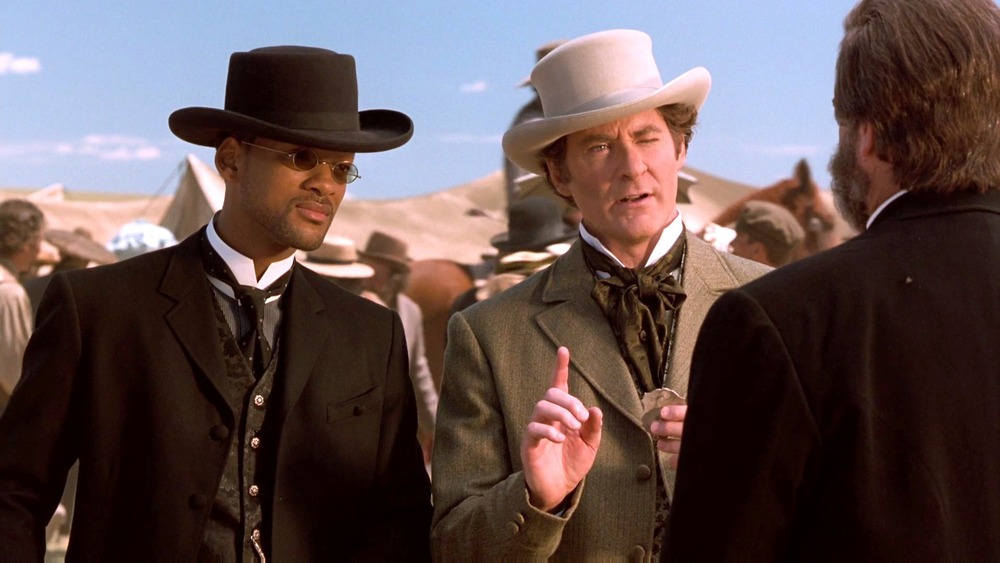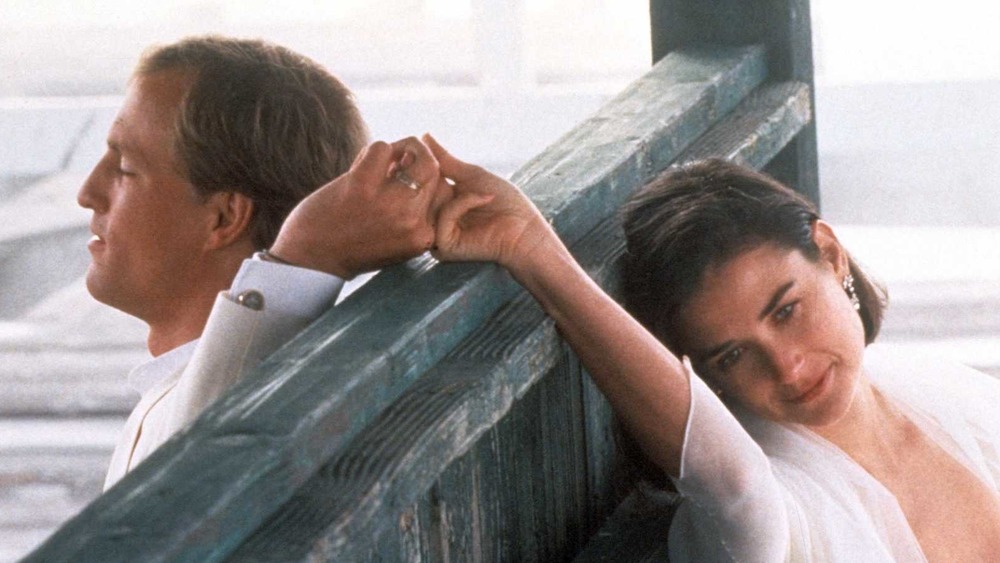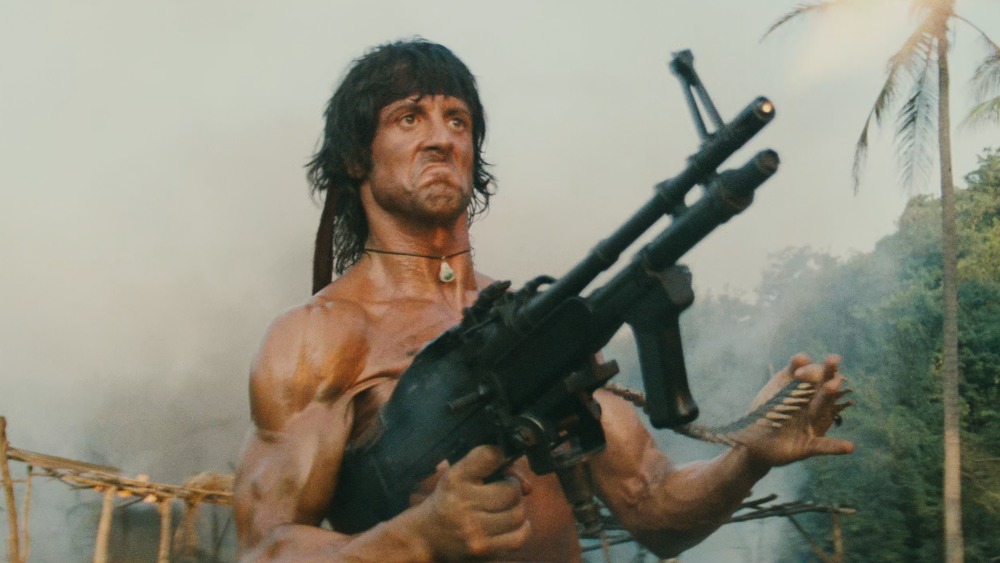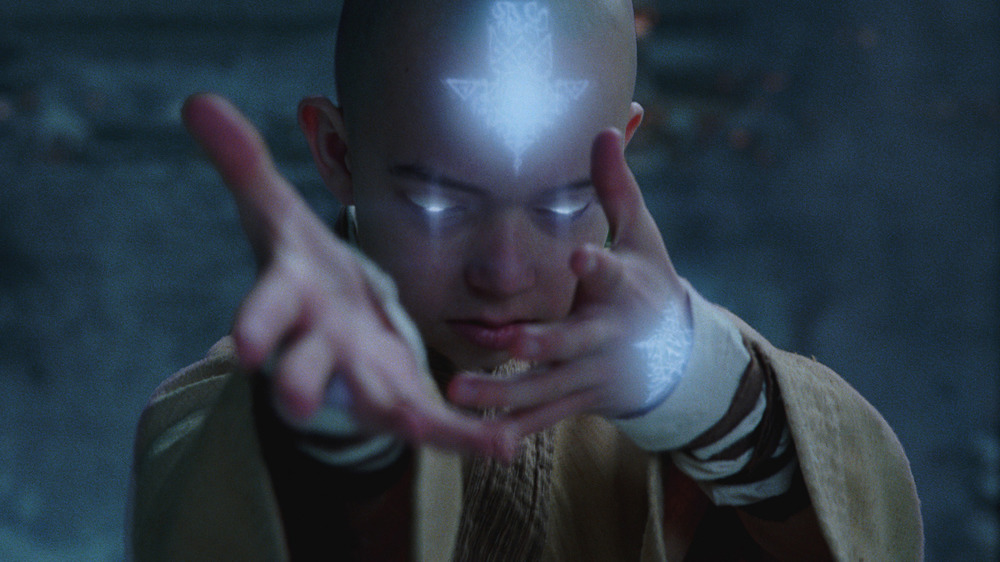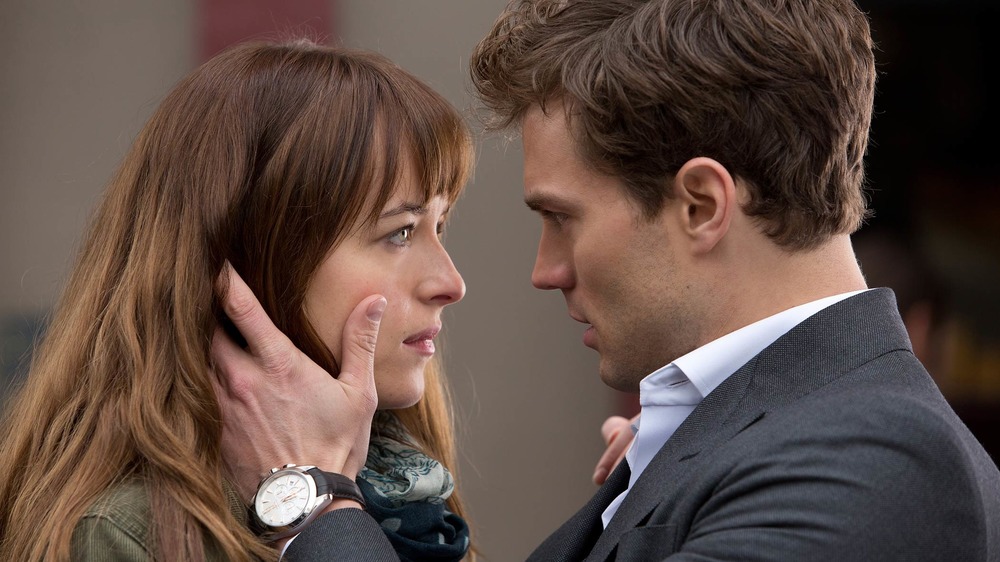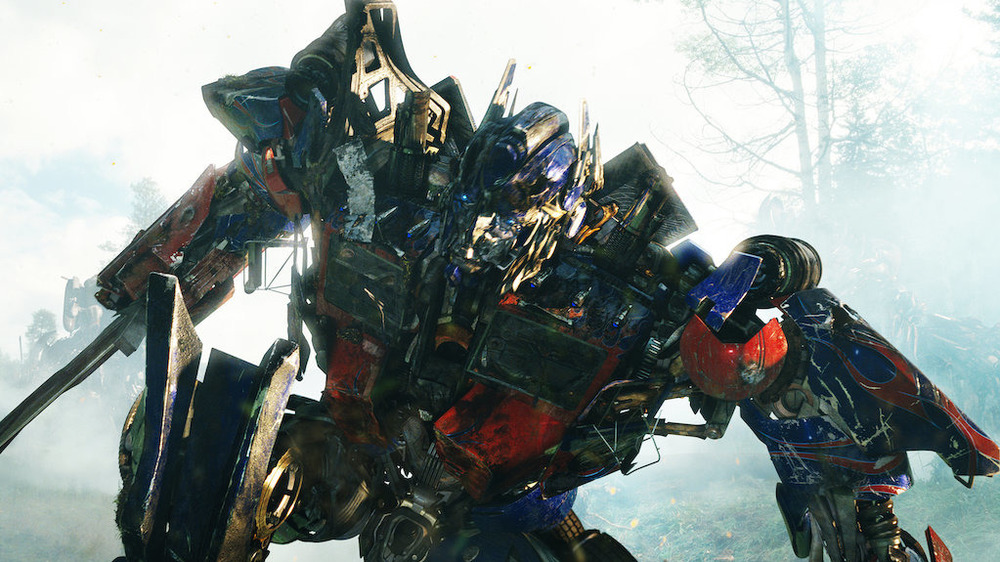The Highest-Grossing Movies That Won A Razzie For Worst Picture
Each year, the Golden Raspberry Awards (aka the Razzies) hold a ceremony to "honor" the worst films that Hollywood has to offer. Granted, the folks behind the Razzies have drawn their fair share of criticism over the years, and some of their picks (The Shining?) still have us scratching our heads. However, the Razzies have also taken aim at some of the biggest films in the movie business, the ones that make millions but leave something to be desired when it comes to critical reviews.
When these blockbusters nab these little golden prizes, it proves that just because you've earned a lot of cash, that doesn't mean you can get away totally unscathed. But in the the long history of the Razzies, which Worst Picture winners were also the biggest victors at the box office? And did their massive amounts of money make up for winning Hollywood's least coveted trophy? From superhero flicks to YA love stories, here are the highest-grossing movies that have won Worst Picture at the Razzies.
Fantastic Four wasn't very fantastic
Even with the modern ubiquity of superhero movies, only a handful of these films have ever won the Razzie for Worst Picture. Among that small group is Howard the Duck, Catwoman, and of course, the 2015 reboot of Fantastic Four, a film that was trailed by toxic buzz for months before its theatrical debut. Said debut came alongside director Josh Trank distancing himself from the project in a now-famous tweet where he claimed, "A year ago I had a fantastic version of this. And it would've received great reviews. You'll probably never see it. That's reality though."
Many bad movies get savaged by the critics, but how many get immediately disowned by their director? All that negative mojo meant that the 2015 Fantastic Four movie made considerably less than usual for a big-budget superhero movie. With only $167.8 million at the worldwide box office, Trank's Fantastic Four came in well behind the box office hauls of the last two Fantastic Four movies and even further beneath the expectations of 20th Century Fox.
On top of all that, critics largely despised the movie, with Todd McCarthy from The Hollywood Reporter labeling Fantastic Four "a 100-minute trailer for a film that never happens." With this avalanche of misfortune and criticism, it was no surprise that Fantastic Four eventually found its way to the Razzies and became one of the rare superhero movies to score a Worst Picture trophy.
Cocktail mixed it up at the Razzies
Tom Cruise is famous for pulling off impossible missions, taking part in the War of the Worlds, and completing people as Jerry Maguire. What he's less famous for is his time as a bartender in the 1988 movie Cocktail. But don't blame that lower profile on the film's box office performance. Like many Cruise vehicles in the 1980s, Cocktail was a big hit, grossing $171.5 million worldwide. A late summer release date that saw Cocktail facing minimal competition, as well as the allure of Cruise in 1988, helped Cocktail to become a box office hit in spite of the project receiving largely negative reviews.
Among many other flaws, critics centered much of their criticisms on how uninvolving the story was. Such critiques mean that, decades into Cruise's career as a leading man, Cocktail remains Cruise's worst-reviewed movie. Given that accomplishment, it shouldn't be a surprise that Cocktail scored a Worst Picture award at the 9th Annual Golden Raspberry Awards. This was despite the film facing stiff competition in the category from all-time bad movies like the talking horse comedy Hot to Trot and the infamous E.T. knock-off Mac and Me. Cruise's star power was enough to save Cocktail at the box office, but it wasn't enough to prevent the movie from also being a smash at the Razzies.
The Razzies didn't receive The Emoji Movie well
Some animated kids' movies take unusual premises and spin them into gold. A rat who wants to cook resulted in one of Pixar's best movie, Ratatouille. Ditto WALL-E, a film starring a largely silent trash-compacting robot. But for The Emoji Movie, something went truly haywire. A premise that sounded bad on paper, concerning emojis wandering around from one licensed app to the next while dropping hip new lingo like Steve Buscemi on 30 Rock, turned out to be just as bad in execution.
The Emoji Movie received staggeringly bad reviews from critics, who saw it as a disgusting exercise in product placement rather than a run-of-the-mill lackluster kids films. Even audiences weren't enamored with the production as they gave it a B CinemaScore, an unusually low grade for an animated family movie. The Emoji Movie's worldwide gross of $216.5 million on a $50 million budget feels like a miracle with that level of vitriol. The negative reception for The Emoji Movie carried over to the Razzies where the film was awarded the Worst Picture trophy.
While live-action kids movies (ranging from The Oogieloves to Old Dogs) have frequently popped at the Golden Raspberries, an animated kids movie had never even been nominated for, let alone won, Worst Picture prior to The Emoji Movie. It was another feat that reminded people everywhere that, sometimes, there's just no way to salvage a bad idea.
How Wild Wild West won ... at the Golden Raspberry Awards
Will Smith experienced his first taste of box office disappointment with Wild Wild West, a massively expensive blockbuster adaptation of the classic TV show of the same name. Costing $170 million to make, Wild Wild West grossed only $222 million at the worldwide box office in its summer 1999 theatrical run. That put its worldwide gross behind far-cheaper 1999 projects like American Pie and The Blair Witch Project.
It also was a massive step down from the worldwide box office performances of Smith's earlier 1990s blockbusters, Independence Day and Men in Black, both of which had also cost considerably less to make. The limited appeal of Westerns in general to overseas audiences made a big-budget version of Wild Wild West a fool's errand from the start. Even with the rising star power of Smith in '99, the film would've had to shatter all the box office norms to become remotely profitable.
Adding insult to injury was how the movie became a punchline thanks to its poor reviews, with the criticism being so rampant that the film's reputation has failed to improve over time. Considering all that, it shouldn't be surprising that Wild Wild West won the Razzie for Worst Picture, beating out the likes of Big Daddy and The Phantom Menace for that dishonor. This feat was just another example of how everything that could possibly go wrong with Wild Wild West had indeed gone wildly, wildly awry.
Indecent Proposal made a decent Razzie winner
Indecent Proposal wasn't just a hit in its 1993 theatrical run, it was a massive hit. With $266.6 million worldwide, the film became the sixth-biggest title at the 1993 worldwide box office, beating out the likes of Philadelphia and Sleepless in Seattle. Many attributed this performance to a tantalizing advertisement campaign from distributor Paramount Pictures, which banked heavily on the sex appeal of the film's leading lady, Demi Moore. While this marketing lured in audiences who ended up captivated by the steamy star-studded thriller, critics were far less impressed. Indecent Proposal scored largely negative reviews, with many critics taking umbrage with how this erotic thriller lacked a key element of any entry in this genre — tension.
But while reviews weren't positive, they were largely mixed or indifferent rather than outright vicious. This makes it puzzling that Indecent Proposal scored three victories at that years Golden Raspberries ceremony, including the Worst Picture trophy. This is a key example of one of the most rampant criticism of the Razzies as an institution, that they tend to go after the film with the biggest stars instead of the one with the worst reception. Fellow Worst Picture nominees that year Silver and Body of Evidence received considerably worse reviews than Indecent Proposal. However, the chance to give a film starring Robert Redford and Demi Moore a Razzie was too juicy of a headline to resist, and thus, Indecent Proposal was named the Worst Picture of 1993.
Rambo: First Blood Part II scored a Razzie 'victory'
There was no way Rambo: First Blood Part II wasn't going to be a box office sensation. The original Rambo movie, First Blood, had taken the world by storm when it debuted in 1982. In the years since Rambo first came to the screen, the fervor for sequels had only grown. Even considering that advantageous buzz, it remains impressive how First Blood Part II managed to crack $300 million worldwide back in 1985. It was a box office achievement that demonstrated how much Stallone's take on Rambo had garnered enthusiasm from the broader public.
Critical reception to First Blood Part II was less rapturous, though it was more mixed than outright hostile. Praise was directed at some of the action set pieces, but there was widespread disappointment that the more thoughtful approach to the character of Rambo was jettisoned in favor of action movie shenanigans. The most scathing response to First Blood Part II came at the Golden Raspberry Awards, where the film beat out fellow Sylvester Stallone vehicle Rocky IV (among other nominees) for the award for Worst Picture.
The film's victory here has frequently been cited as an example of larger problems with the Razzies as an institution. Mike Ryan of Uproxx, in particular, noted that First Blood Part II winning Worst Picture was an indicator of the Razzie's picking easily recognizable movies rather taking the effort to dig up more obscure but actually bad pieces of filmmaking.
The Last Airbender was all wet at the Golden Raspberry Awards
Today, The Last Airbender is one of M. Night Shyamalan's most reviled projects. Both diehard fans of the original Last Airbender cartoon and general moviegoers alike were united in their criticisms over this project. In fact, Roger Ebert wrote, "The Last Airbender is an agonizing experience in every category I can think of and others still waiting to be invented." Even Shyamalan has reflected on the film as an unfulfilling creative exercise. "I did these movies," Shyamalan said (via IndieWire), referring to big-budget tentpoles like The Last Airbender and After Earth, "and I rightfully got crushed, because they rightfully said, 'You don't believe in yourself, you don't believe in your own voice, and you don't believe in your values.' I felt really lost. It just didn't work."
Despite the universal criticisms, The Last Airbender still made $319.7 million in its worldwide box office run. That wasn't great considering its $150 million budget, but it still emerged as the 19th biggest movie of 2010 and improved on the box office hauls of other live-action adaptations of kids cartoons, such as Dragonball: Evolution. Those minor box office feats weren't enough to warrant a pair of planned sequels nor were they enough to ward off the film receiving the Golden Raspberry award for Worst Picture of 2010. This made it Shyamalan's first movie to score that award after his preceding two films, Lady in the Water and The Happening, were both nominated in that category.
Fifty Shades of Grey had a painful reception
Given the disastrous critical reception that greeted the book Fifty Shades of Grey, it shouldn't be a surprise that the feature film adaptation of the same name also garnered dismal marks from critics. Claudia Puig from USA Today said that Fifty Shades of Grey was a "plodding, inane, and wretchedly acted movie" while Susan Wloszczyna of RogerEbert.com wrote that, in this steamy thriller, "There is always a sense of every erotic moment being choreographed by committee." On and on the critiques went. Even for the pain-obsessed, the critical thrashing Fifty Shades of Grey received bordered on too much.
This made it no surprise when Fifty Shades of Grey won Worst Picture at the Golden Raspberry Awards, tying with Fantastic Four for the "honor." But also just like its source material, Fifty Shades of Grey proved a lucrative enterprise in spite of widespread derision. The film grossed $570.9 million worldwide, a staggering amount in any context, but an especially impressive haul for an erotic thriller. While it may have been deemed the worst picture of 2015, a massive amount of moviegoers around the world still chose to submit to Mr. Grey.
Breaking Dawn - Part 2 chomped into Razzie glory
The Twilight franchise had a unique quality in its box office performance. Save for Breaking Dawn – Part 1, each Twilight movie made more than the last at the worldwide box office. This meant that the last entry in the series, The Twilight Saga: Breaking Dawn – Part 2, was able to become the highest-grossing entry in the series with $829.7 million worldwide. That included a whopping $537 million overseas, a significant improvement over the $209 million overseas gross of the first Twilight movie from four years prior. So when it came to making stacks of cash, this final Twilight movie was an indisputable hit.
The critical reception to the finale was overall mixed, with criticism levied at the subpar visual effects but praise being offered for a more propulsive plot, especially a finale that briefly brought hardcore violence to this series. But in spite of receiving a better critical response than its predecessors, Breaking Dawn – Part 2 took home the Razzie for Worst Picture at the 33rd Golden Raspberry Awards.
This was the first time the Twilight franchise had scored a Worst Picture win at the Razzies after the two previous installments, Eclipse and Breaking Dawn – Part 1, were nominated in the category. This victory was in spite of the Worst Picture category that year featuring far more reviled movies like That's My Boy or The Oogieloves. At least the producers of Breaking Dawn – Part 2 can comfort themselves with that record-breaking box office haul.
There wasn't more than meets the eye with Transformers: Revenge of the Fallen
On Transformers: Revenge of the Fallen's opening day, Roger Ebert penned an essay explaining just how bad this newest Michael Bay movie was. To Ebert, Revenge of the Fallen was "marking the end of an era." As he explained, "Of course, there will be many more CGI-based action epics, but never again one this bloated, excessive, incomprehensible, long (149 minutes) or expensive (more than $200 million)." It was a sentiment echoed by critics at large, who largely hated the movie and said that Michael Bay had taken his widely derided filmmaking skills to a new low. Even Bay himself would admit the film came up short in the years after its release.
Fallen's poor reception extended to the Golden Raspberry Awards, which bestowed upon Revenge of the Fallen the Worst Picture award. To date, it's the only Michael Bay directorial effort score this award. While today, Revenge of the Fallen is widely disliked for everything from its incoherent action to its racist stereotypes, the film was a massive hit in its summer 2009 theatrical run, grossing $836.5 million worldwide. At the time of its release, Revenge of the Fallen was handily one of the largest films of all-time, though that didn't erase the countless criticisms lobbied at the production. In contrast to its box office performance, the Worst Picture "victory" was a far greater ending to the story of Revenge of the Fallen, a movie Ebert once described as "painful."
